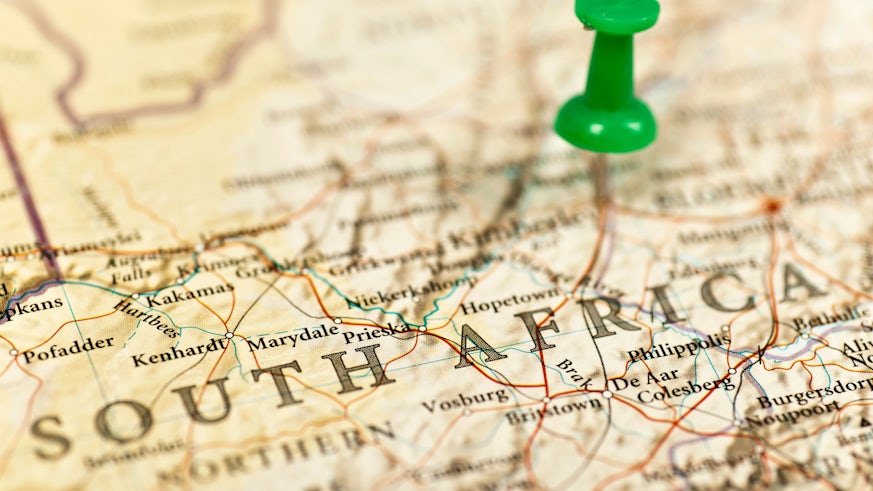Remaking the map
15 November 2016

A new international research project revealing significant episodes of South African and Dutch history and its impact on trade internationally is to be undertaken by researchers in Cardiff and South Africa.
Early Modern historian Dr Mark Williams of Cardiff University’s School of History, Archaeology and Religion, and Professor of Physical Geography, Stefan Grab of the University of Witswatersrand, aim to digitise and translate 44 years of Dutch East India Company day registers, based at the Cape of Good Hope during the rise, heyday and eventual decline of the major international trading company.
Representing one third of the company’s history, the complete records are widely acknowledged as one of the world’s most valuable sources for the study of global and regional history in the 17th and 18th centuries.

Revealing a daily human picture of politics, diplomacy, diet, settlement, trade and weather extremes – the Vereenigde Oost-Indische Compagnie (or VOC) registers will be transcribed before being translated into English from Dutch and digitised to enable access to scholars worldwide. The VOC daghregisters project adds to the significant work of the Tracing History Trust on the records, which has since 2003 been designated part of UNESCO’s Memory of the World programme.
Eighteen years are currently available in both original (Dutch) and English translation, thanks to the Tracing History Trust. The complete records hold keys to a wide range of questions about this major expansion of international trade, enabling more studies than ever before across a range of scholarly disciplines.
The new project focuses on key years of three significant periods of the company’s history:
Rise and Heyday 1608 – 1707
Its flourishing through the British and Dutch union of 1688 with the coronation of William III [Willem III of the Netherlands]
Gradual Eclipse 1713 – 1730
From prime to demise, during the ‘Golden Age of Piracy’ and rise of key competitor the English East India Company (EIC)
Decline 1780 – 1794
A significant period of change, when global events such as the French Revolution had a major impact on politics and trade

“The records of the VOC in the Cape are unique not only for the insights they provide into South African history over these centuries, but also the place the Cape occupied in a globalizing world..."
"The VOC daghregisters provide a virtually unbroken record of the Company’s presence at what was an increasingly important hub of transnational activity,” said Dr Williams.
Based in Johannesburg, expert in Historical Climate Change Professor Grab said: “Bringing my expertise in climate change, I will be examining the Cape weather patterns of the 17th and 18th centuries and establish the extent to which it may have differed from that of today.
"I am particularly interested to establish how early settlers coped with and adapted to weather extremes and past climates through time. Digitizing the records ensures their preservation forever, saving their contents from the ravages of time and potential destruction through unforeseen events such as fire.”

Working with archivists at the Cape Town and Den Haag archives, the records will be made available publicly for future generations both online and as educational resources as PDFs and on CD.
Starting this autumn, the £44,000 project will seek to complete its first phase by the end of 2018, aiming to develop the project to cover the entire 150 years of Dutch presence in southern Africa (1652 – 1795). The VOC daghregisters project is made possible through funding from the British Academy’s Newton Fund and the University of Witwatersrand.
Share this story
The School allows the brightest and best to explore and share their passion for past societies and religious beliefs, from prehistory to the present day.
